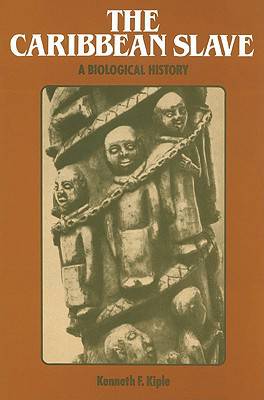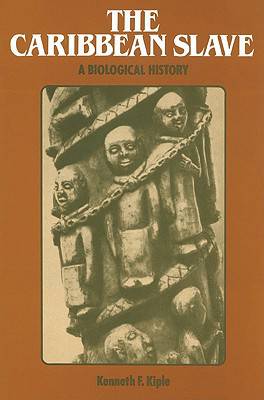
Bedankt voor het vertrouwen het afgelopen jaar! Om jou te bedanken bieden we GRATIS verzending (in België) aan op alles gedurende de hele maand januari.
- Afhalen na 1 uur in een winkel met voorraad
- In januari gratis thuislevering in België
- Ruim aanbod met 7 miljoen producten
Bedankt voor het vertrouwen het afgelopen jaar! Om jou te bedanken bieden we GRATIS verzending (in België) aan op alles gedurende de hele maand januari.
- Afhalen na 1 uur in een winkel met voorraad
- In januari gratis thuislevering in België
- Ruim aanbod met 7 miljoen producten
Zoeken
Omschrijving
This study focuses on the black biological experience in slavery, in the Caribbean. It begins with a consideration of the rapidly changing disease environment after the arrival of the Spaniards; it also looks at the slave ancestors in their West African homeland and examines the ways in which the nutritional and disease environments of that area had shaped its inhabitants. In a particularly innovative chapter, he considers the epidemiological and pathological consequences of the middle passage for newly enslaved blacks. The balance of the book is devoted to the health of the black slave in the West Indies. Using the general health and level of nutrition of the island whites as a control, Kiple pays especially close attention to the role that nutrition played in the development of diseases. The study closes with a look at the continuing demographic difficulties of the black West Indian from the abolition of slavery.
Specificaties
Betrokkenen
- Auteur(s):
- Uitgeverij:
Inhoud
- Aantal bladzijden:
- 292
- Taal:
- Engels
- Reeks:
Eigenschappen
- Productcode (EAN):
- 9780521524704
- Verschijningsdatum:
- 20/06/2002
- Uitvoering:
- Paperback
- Formaat:
- Trade paperback (VS)
- Afmetingen:
- 152 mm x 229 mm
- Gewicht:
- 430 g

Alleen bij Standaard Boekhandel
+ 198 punten op je klantenkaart van Standaard Boekhandel
Beoordelingen
We publiceren alleen reviews die voldoen aan de voorwaarden voor reviews. Bekijk onze voorwaarden voor reviews.









